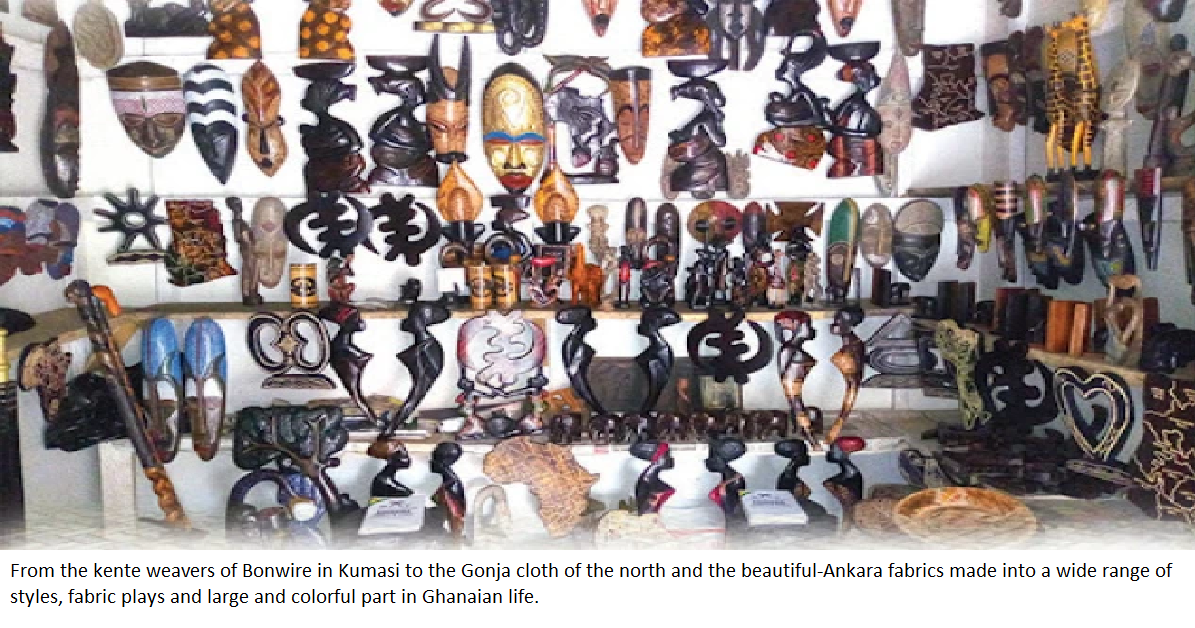BUCKET LIST: THE REPUBLIC OF GHANA
For a first-time visitor to Africa, Ghana is a perfect country. It is officially called the Republic of Ghana named after the Medieval West African Empire.
Accra is the capital of Ghana and has several attractions worth visiting. The word Ghana means “Warrior King” dating back to the Ghana Empire with evidence of human existence dating to almost two centuries BC.
It has an area of 238,533 square km and its official language is English. Ghana cedi (GHS) is its official currency. It has three bordering countries that are Côte d’Ivoire, Burkina Faso, and Togo.
Visiting Ghana is more about the immersive experience than sightseeing. The country is a confluence of rich heritage, culture, pride and hospitality, food
Ghana has an abundance of natural beauty, and remote wilderness. It has a population of approximately 32,103,042 people (2022 est.)
The National flag of Ghana was made by Theodosia Okoh, an Artist with international exhibits. The Ghanaian national football team is called the “Black Stars,” taken from the flag design and the iconic shipping line. Gnana’s drive for independence was led by Kwame Nkrumah as a result of which 30 other countries followed suit and gained their independence.
Ghana formed the Union of African States, with Guinea and Mali joining from 1958 to 1963. The organization modified the Ghanaian flag, including three stars to represent all members.
FACTS ABOUT ITS CULTURES AND TRADITION.
- POPULAR LANGUAGE
Ghana is a multi-lingual country wherein about 8 languages are spoken. The eight languages are Akan, Dagbani, Ewe, Ga-Adangbe, Gurma, Fulani, Guan, Gurunsi, and Bissa/Mande.
Akan is the most popularly used language in southern Ghana, Dagbani is most widely spoken in the North after English is spoken by nearly 67.1% of the inhabiting people.
- INDEPENDENCE
Ghana before 1957 was commonly known as the Gold Coast due to the availability of gold along the rivers Ankobra and Volta.
After World War II, educated Ghanaians thought it wise that they could seek independence from their country and liberate themselves from oppression.
Kwame Nkrumah became the first president of independent Ghana after it gained independence in 1957. He singlehandedly spearheaded the liberation from colonial rule and the establishment of a socialist African unity.
The Independence of Ghana is celebrated on March 6 yearly. It is usually declared a public holiday. The holiday is also called Ghana National Day
- START-UP BUSINESSES
Starting a business in Ghana has been made easy with the little bureaucracy involved and regulated business freedom.
Foreigners are encouraged to invest in the country provided they are legally registered with the government.
Most Ghanaian foods are traditionally reflective of the country’s history as well as agriculture. Ghana reverted to its pride in the Ashanti Empire. Trade, Commerce, and entrepreneurial spirit mark the modern ethos of the Ethos of Ghana.
- CUISINE
The delicacy for most people is boiled cassava, plantains, and yams which are rolled into balls commonly known as fufu. Most, if not all dishes in Ghana are spiced up mainly with chilies and red peppers.
Ghanaian main dishes are organized around staple food usually served with sauced or soup containing a protein source.
- FESTIVALS
- Ghanaians celebrate a dancing festival held annually and most of their celebrities are known globally for not allowing their wealth or even status to affect their daily living. Examples of some festivals include the Bugum festival, Edina Bronya Festival Bugum Festival, Dzawuwu festival, etc.
BUGUM FESTIVAL:
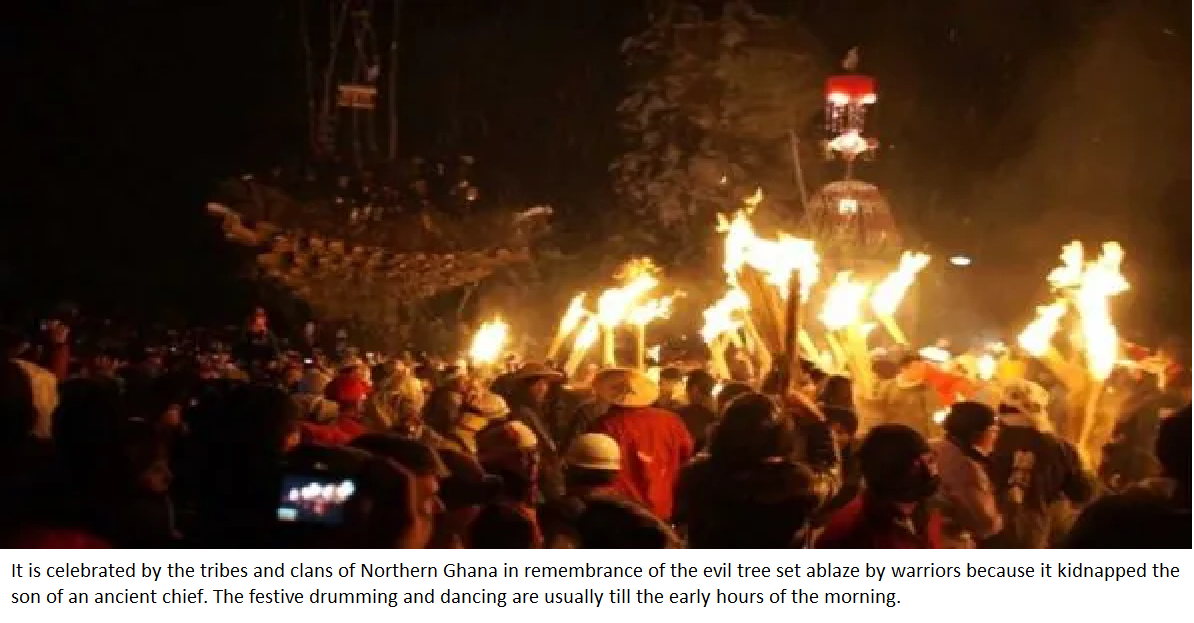
BEACHES
Ghana is graced with more than 540 km of dazzling beaches.
Labadi Beach
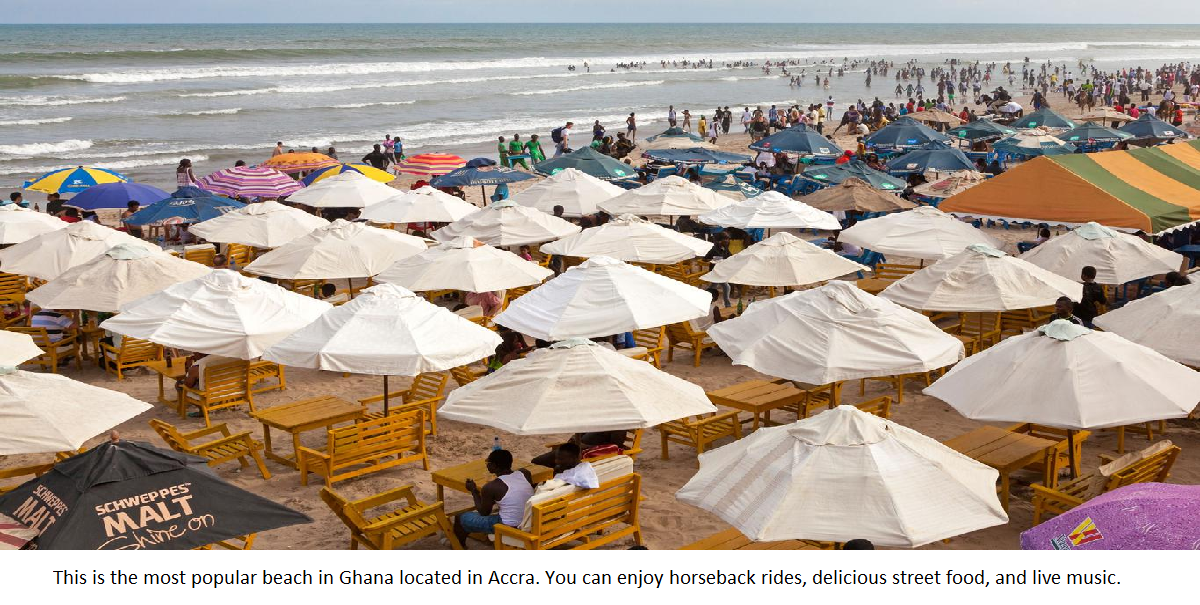
- TOURIST SITES
The Amazing Tourists Sites of Forts, Castles, and Matchless Mud Mosques are available for your exploration.
North Ghana is known for the unique centuries-old white mud mosques, build in the West Sudanese style. The Larabanga Mosque in particular is a must-see, a quaint broad rectangular structure with whitewashed mud walls, and spiked timber struts.
- MUSEUMS
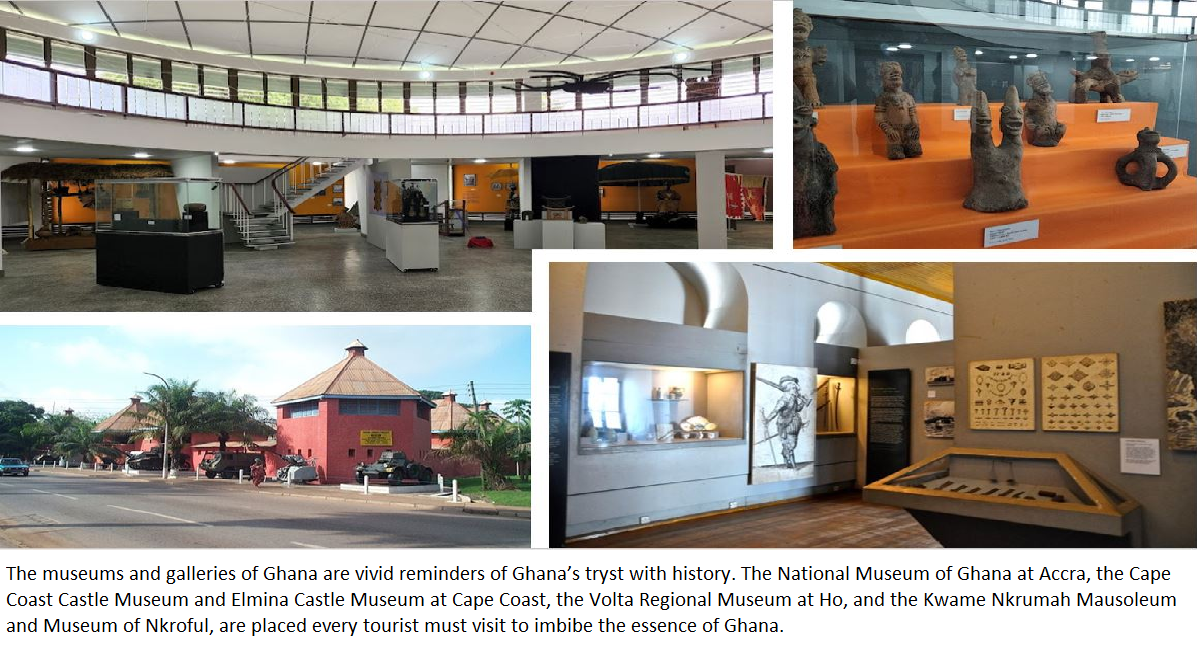
- ADVENTURES
Ghana has plenty of hiking for the newbie as well as the die-hard enthusiast. Most of the hiking and walking tours are based in the National Parks and personalized to include biking, culture, history, wildlife, and birding. The Volta Region offers opportunities for waterfall hiking, where you can combine steep hiking with swimming in the natural lagoons. Nocturnal ‘turtle walks’ along the beach, and guided hiking along birding trails are other adventures that add to the feeling of being at one with nature.
- HISTORICAL FORTS
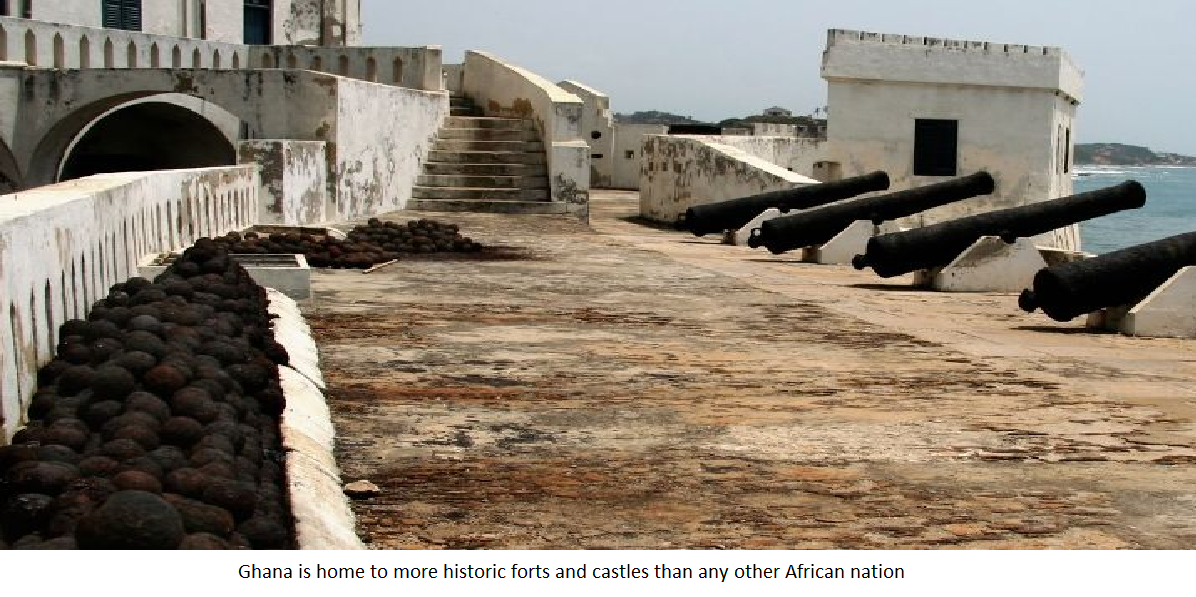
- RIVERS AND LAKES
The largest man-made lake in the world, the Volta river stretches south from the Akosombo Dam to the northernmost reaches of the country and into Burkina Faso.
- CRAFTS
